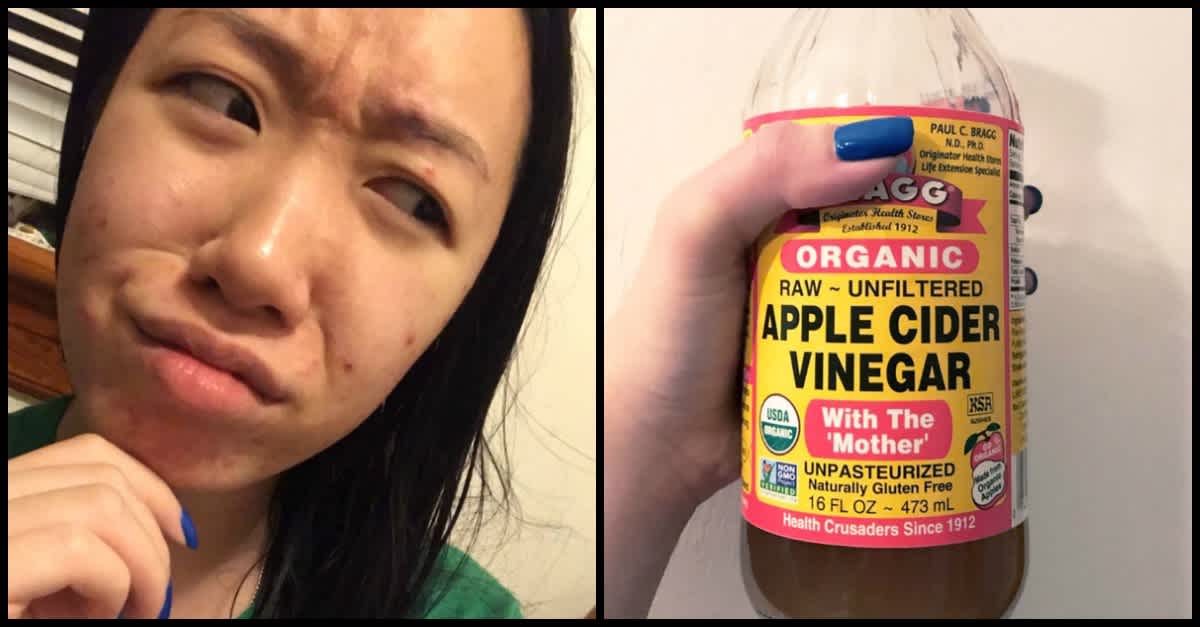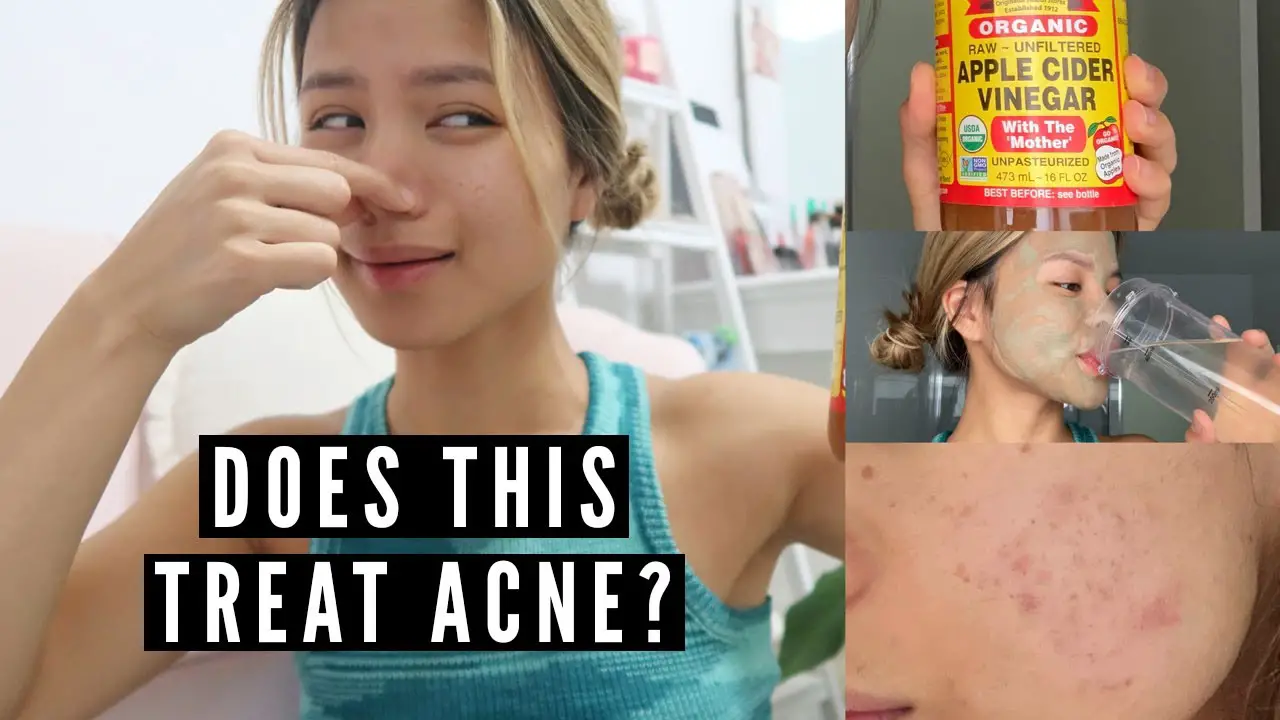Vinegar may help treat acne by reducing inflammation and balancing the skin’s ph levels. Acne is a common skin condition that occurs due to clogged pores, bacteria, and excess sebum production.
Vinegar, especially apple cider vinegar, contains acetic acid, which has antimicrobial properties that can help kill the bacteria on the skin. It also has an acidic nature, which can help restore the skin’s natural ph balance and reduce inflammation. However, it is important to note that individual results may vary, and it is best to consult with a dermatologist before using vinegar as a treatment for acne.

Credit: littlethings.com
The Science Behind Vinegar And Acne
Vinegar’s role in acne prevention lies in its natural properties and ability to balance the skin’s ph levels. The skin’s ph plays a crucial role in acne development. Vinegar can help to restore the skin’s acidic ph, preventing the growth of acne-causing bacteria.
By maintaining a balanced ph, vinegar creates an unfavorable environment for acne to thrive. Utilizing vinegar as a natural remedy for acne can be effective in reducing breakouts. Beneficial acids found in vinegar, such as acetic acid, lactic acid, and citric acid, help to gently exfoliate the skin, unclog pores, and reduce inflammation.
Incorporating vinegar into your skincare routine can provide an affordable and natural solution for acne-prone skin. With its ability to fight off bacteria and restore the skin’s ph levels, vinegar can be a valuable tool in your quest for clear and healthy skin.
Types Of Vinegar And Their Benefits For Acne
Vinegar is often recommended for treating acne, and apple cider vinegar is a popular choice.
Using Vinegar For Acne: Effective Methods And Precautions
Using vinegar for acne treatment is a popular natural remedy. Diluting vinegar before applying it to the skin is essential to prevent irritation. There are different ways to use vinegar for acne, such as applying it directly to the affected area or using it as a toner.
However, caution must be taken as vinegar can be harsh on sensitive skin. Before using vinegar, it is important to consider any allergies or skin sensitivities. Conduct a patch test on a small area of the skin to ensure there are no adverse reactions.
Additionally, it is recommended to consult with a dermatologist before incorporating vinegar into your skincare routine. By following these precautions and properly diluting vinegar, it may help to alleviate acne symptoms and promote clearer skin.
Potential Side Effects And Limitations Of Vinegar For Acne
Using vinegar for acne may have potential side effects and limitations. It’s important to consider the risks associated with using vinegar on sensitive skin. An adverse reaction can occur if vinegar is used incorrectly. Understanding the limitations of vinegar as an acne treatment is crucial.
It’s necessary to exercise caution and consult a dermatologist before attempting to use vinegar for acne. Alternative treatments and products may be more suitable for individuals with sensitive or reactive skin. It’s always recommended to seek professional advice for any skin concerns.
Be vigilant and aware of the potential risks and limitations before incorporating vinegar into your acne skincare routine.
Other Natural Remedies For Acne
Vinegar is considered a natural remedy for acne, but are there other options to explore? Let’s compare their effectiveness and benefits. Vinegar, for instance, might have its advantages, but what about other natural treatments? Instead of relying solely on vinegar, it’s worth considering alternative remedies for clearer skin.
Incorporating Vinegar Into Your Skincare Routine
Incorporate vinegar into your skincare routine by using it for acne prevention. Use vinegar daily but be mindful of balance with other skincare products.
Seeking Professional Advice For Persistent Acne
Seeking professional advice is essential if you are dealing with severe or persistent acne.
FAQ
Does Vinegar Help Acne?
Vinegar can help clear acne by balancing the skin’s ph and killing bacteria. Its natural properties can reduce inflammation and help unclog pores. However, it’s important to dilute vinegar before using it on your skin to avoid irritation. Additionally, it may not work for everyone, so it’s best to consult with a dermatologist for personalized advice.
Conclusion
Based on the research and information discussed throughout this blog post, it is evident that vinegar can indeed help with acne. Its natural properties, specifically its acidity and antimicrobial properties, can effectively combat bacteria and reduce inflammation in the skin.
The acetic acid in vinegar helps to regulate the ph level of the skin, preventing the growth of acne-causing bacteria. Additionally, the astringent properties of vinegar can help to control excess oil production and unclog pores, which are often the main culprits behind acne breakouts.
However, it is important to note that vinegar should be used with caution and in moderation, as it can potentially cause skin irritation for some individuals. It is always advisable to perform a patch test before applying vinegar to your entire face and to dilute it with water to minimize any potential side effects.
Incorporating vinegar into your skincare routine can be a natural and cost-effective solution for managing acne. As with any skincare remedy, consistency and understanding your own skin’s needs are key factors in achieving the desired results.

